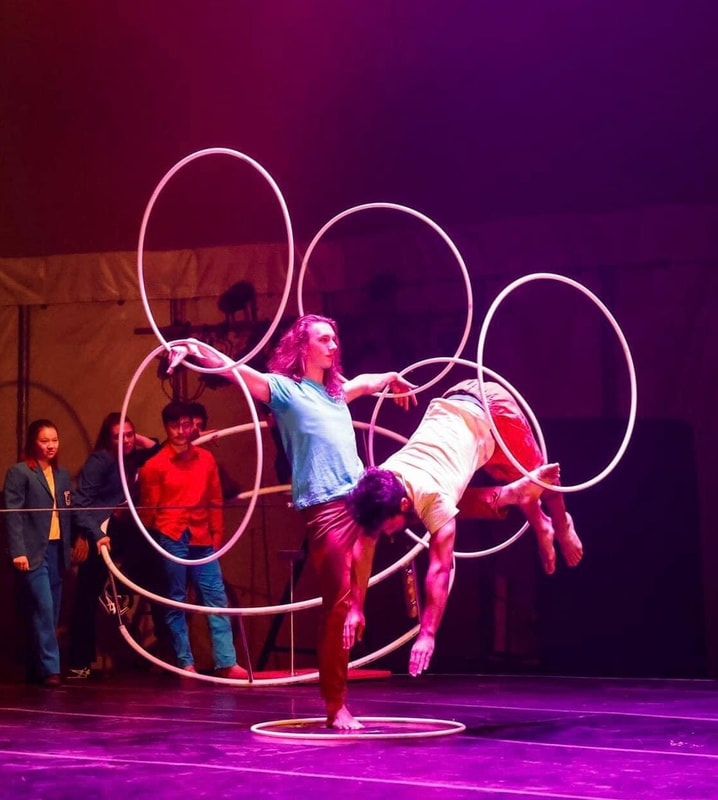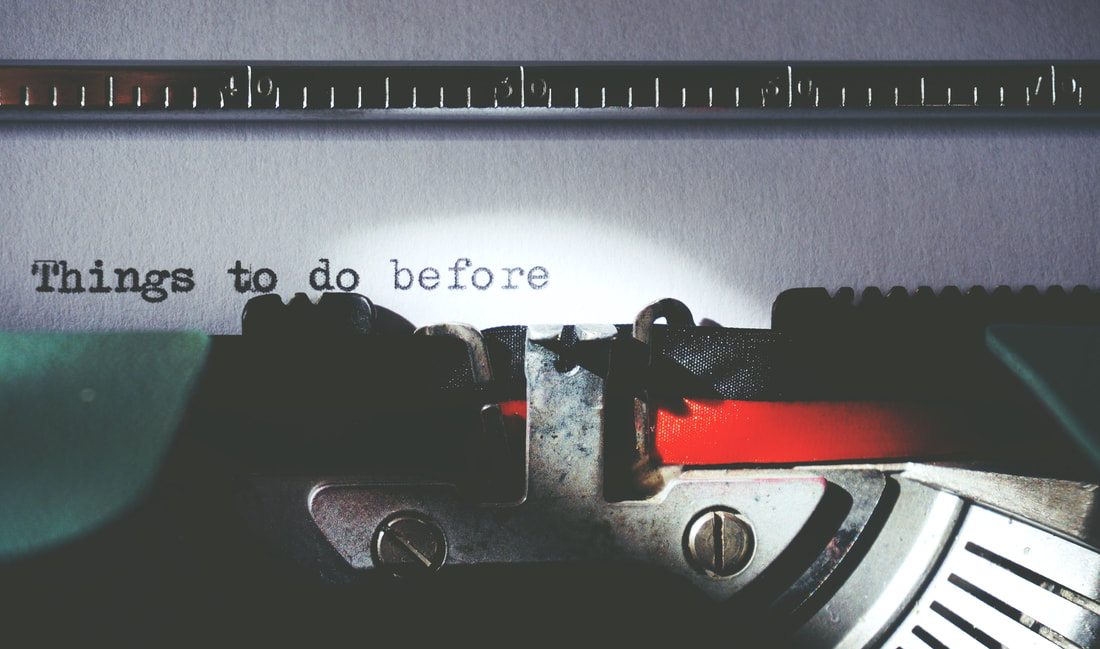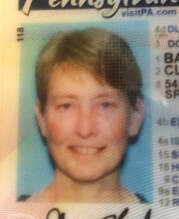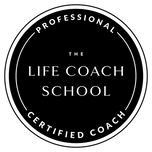|
Here's a personal story that might resonate with some of you, especially if you find yourself frequently critical of your partner.
In my journey as a relationship coach, I’ve learned a lot about how we project our insecurities onto our partners. This lesson hit home for me in my own relationship with my wife, Jenn. I would find myself being critical of her when other things were going wrong in my life. When I was feeling critical of her, it was actually a clue that I was being judgmental of myself. I was unwittingly pointing fingers at her habits, like not putting things away or taking a long time to get ready to go out, than to address my own issues. Through my own coaching process, I had a breakthrough. I realized that my criticism of Jenn was a reflection of my own self-judgment. When I was feeling unfocused or disorganized, I zeroed in on her habits and made them the problem. These days, when I find myself being judgmental of her, I know that there's something going on with me that I need to work on. If you find yourself stuck in a pattern where your partner is just not doing what she's supposed to, here’s a journaling exercise to help you dig deeper: 1. Identify the Annoyances: What are the most common things that bother you about your partner? Go beyond surface-level complaints. Why do these things really bother you? Dig into your feelings and try to understand the root cause. 2. Examine Your Beliefs: What do you believe these characteristics say about your partner? Do you think they are careless, inconsiderate, or something else? Reflect on these beliefs and where they might be coming from. For instance, if your partner is always late, do you interpret that as a lack of respect for you? 3. Turn the Mirror Around: What might these bothersome characteristics say about you? How might this reflect your own fears or insecurities? For example, maybe you fear that partner's lateness means you aren't worthy of not being kept waiting. 4. Imagine the Ideal: If your partner changed all these things, what would you think and feel? Visualize how this perfect scenario would look and the emotions it would bring up for you. Would you trust it if your partner suddenly fixed all those things you hate? 5. Shift Your Thoughts: What thoughts can you start practicing now, without your partner changing anything, to help you feel the way you want to? How can you reframe your perspective to find peace and contentment in the present moment? This exercise isn’t about ignoring your partner’s behavior or excusing it. It’s about understanding the deeper layers of your reactions and finding a more balanced perspective. If you’re ready to explore this further and get to the root of your criticism, I’m here to help. You can book a session with me. Together, we can uncover what’s really going on and work towards a healthier, more fulfilling relationship. Remember, it’s not about perfection. It’s about progress and understanding ourselves better every day. Warmly, Claire
0 Comments
I am a contributing writer for Gay Moms Club. This article was originally published there. If you are a mom in the LGBTQ+ community, I encourage you to join!
When our older son was just a baby, my wife and I eagerly shared our journey as lesbian parents with the world. We reveled in the joy of talking about our family, celebrating our love, and championing the cause of queer families. Our story found its way into a local queer glossy magazine, and we even graced the pages of Philadelphia's esteemed daily newspaper, the Philadelphia Inquirer. After our family expanded with the arrival of our second son, we found ourselves standing on a stage on Independence Mall in Philadelphia at a PrideFest event in front of a crowd of hundreds, where my wife passionately spoke about marriage equality and the significance of embracing queer families. It was a moment of pride and empowerment that we happily shared with our community. With the advent of social media, we embraced the opportunity to showcase our happy lesbian family on platforms like Facebook and Instagram. My mother-in-law in particular was thrilled to get almost real-time photos and updates of her grandkids. We delighted in sharing our parenting journey, proud of our boys and the unique individuals they were becoming. Fast forward to the present, and our kids have reached the age of majority. Our younger son has embraced the world as a circus performer, showcasing his talents and passions to the world. On the flip side, our older son has grown more private. To our surprise and concern, he expressed dismay at the widespread sharing of his childhood images on social media. He requested that we refrain from posting about him ever again. It was actually pretty devastating – our intention was never to cause him pain. Naturally, we respect his wishes and now find ourselves in a position where our online presence is dominated by posts about our circus-performing son. Yet, as parents, we grapple with a unique challenge – we love both our sons more than anything and want to ensure that our online narrative reflects that love. This experience has prompted us to reflect on the journey we've undertaken as parents, respecting our son's wishes, demonstrating our pride in both our boys, and sharing our parenting experiences authentically. It's a delicate balance, one that requires navigating the intricacies of online parenting, especially when your family is proudly part of the LGBT community. While our sons harbor no personal concerns or embarrassment about having lesbian parents, all four of us recognize the broader landscape in which our family exists. LGBT parents must be attuned to the potential risks of homophobic backlash that can target our families. Being aware of these potential challenges allows us, as parents, to navigate the digital space with a nuanced understanding, ensuring that our children's online experiences remain as positive and supportive as possible. Our family's journey underscores the importance of fostering an environment that celebrates love and diversity while remaining vigilant against the realities of a world that may not always share the same inclusive values. In light of our own journey, here are the top 5 considerations for LGBT parents when it comes to sharing their minor child's photo online:
It is a journey to develop a connected, loving, lifelong relationship with your kids. Whether they are 2 or 22, coaching can help. Want to discuss? Book a free session! One thing’s for sure, the longer you work, the more chances you have to quit your job. I recently resigned from my seventh grown-up job. It was the position I’d worked at the longest – more than nine years. Since this experience is top of mind, I wanted to share my top take-aways when deciding to quit.
Before we get to the list though… The main thing is to imagine how you want to feel after it’s all said and done. For me and this latest departure, I wanted to leave with integrity. I value the work of the organization even though I am ready for what’s next. I care about the people who still work there. I am mindful of my professional reputation. I crafted my entire exit strategy with these values in mind. Leaving with integrity truly is hard work up front, but your conscience will thank you after the fact. Now, the list: 1. Do the math. You might be in a place of wanting to quit but thinking you can’t afford it unless you have another job already lined up. There’s a handy technique I refer to as “math vs drama” – actually knowing what you need to bring in to meet the expenses you are absolutely on the hook for (mortgage, health insurance, etc), you need to know how much that adds up to. And if you want to leave before you have a replacement job, how much would you need to earn as a stopgap situation and for how long? The number might be daunting, but the unknown is paralyzing. When you have a target amount, you know what you are aiming for. If you think it’s doable, then you can actively decide to depart (rather than deciding to stay by not deciding at all.) 2. Discuss it with your support structure.
3. Decide:
4. Dig through your documents and detangle. Some employers will ask you to leave immediately. Tidy up your inbox and your files (virtual or real) before you give notice. While it’s never a good idea to have personal documents or correspondence commingled with your work stuff, it definitely happens, so sort through it prior to giving notice. 5. Deliver Notice:
6. Delegate and Document:
7. Depart Gracefully:
Need someone to hold space to help you decide? I'd be happy to help. Message me or click her to set up a call. Today I want to share the TOP FIVE reasons why I love working as a life coach and helping you create the change you want to see for yourself!
Have you noticed that something you’ve been working to accomplish — once you finally get it done — might not feel like it was a big deal? Or worse, your brain will give you evidence that it was actually bad? Here’s a prime example from my own self-critical noggin: Getting my REAL ID.
Taking care of getting my REAL ID has, truthfully, been on my list for several years. The pandemic brought a reprieve, but when my driver’s license expired, I decided that it would be logical and practical to finally get around to REAL ID-ing. First challenge: My camera card for my driver’s license never arrived, so I had to request a new one. Add two weeks. Next, I had to figure out wtf they want in terms of documentation for REAL ID. My passport is current — check. Original social security card? Hadn’t seen that since 1978, so time to figure out what paperwork that would take, fill out the required forms and go wait in line at the social security office then wait for the new one to come in the mail. Add six weeks. Procrastinate/not have time to think about it. Add two weeks. Now in the home stretch, I found bills in my name that prove I live where I say. Then, finally, off I went to a REAL ID drivers license center. Then I moved through two lines at that office, paid them ~$70, finally to be in front of the camera for my new REAL ID driver’s license. Victory! Hooray! Right? Wrong. I took one look at the picture when it was all said and done and thought “I look really tired. And I should have gotten a haircut first. I’m going to have to look at this pic until 2030.” Thanks, brain, you big jerk. Instead of patting me on the back for being perseverant and resourceful, and that I took care of a thing that had been on my mind for quite awhile and that I wouldn’t need to worry about it again for 7.5 years, the judge who occupies space in my head without paying rent decided to criticize my appearance instead. Which is just what all human brains do, if we don’t catch them out on it. It’s only by spotting those unhelpful thoughts that we can challenge them. I’m totally onto my judge, but sometimes it takes me a little while. Looking at the photo now, a week after it was taken, I see that it’s fine. And it’s a driver’s license photo, not a Glamour Shot portrait. Calm down, brain. This is the sort of work I not only do with my coaching clients, but I teach them how to do it for themselves also. Interested in learning more? Sign up for a free one hour coaching session today and I will share ways to not only get more stuff done, but also how to enjoy the victories more. |
Archives
January 2024
|





 RSS Feed
RSS Feed
